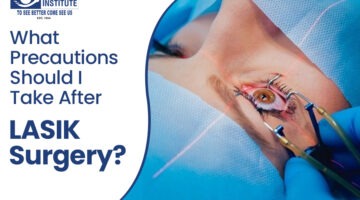Glaucoma is a serious and insidious eye disease that can lead to blindness if not detected and treated early. Glaucoma screening is a simple and effective way to detect this disease before it is too late. In this blog, you will understand the basics of glaucoma screening, including the tests conducted during screening, hereditary factors, frequency of screening, medication administration, cure, and the possibility for glaucoma surgery.
- What is Glaucoma Screening and Why is it Important?
Glaucoma screening involves a comprehensive eye exam that is done by your eye doctor to detect any signs of glaucoma. This exam usually includes measuring the intraocular pressure, checking the optic nerve, and examining the angle in the eye where the iris meets the cornea. It is important to undergo regular screening to ensure early detection of glaucoma.
There are several tests that can be conducted during a glaucoma screening, including applanation tonometry to measure the intraocular pressure, ophthalmoscopy to check the optic nerve, and perimetry to test the visual field. These tests can help in the early detection and diagnosis of glaucoma.
- Is Glaucoma Hereditary?
Glaucoma can be hereditary in some cases however there are no specific genes that cause glaucoma. Individuals with a family history of glaucoma might be at higher risk of developing the disease, and hence should go through more regular screenings with their eye doctor.
- How Often Should You Get Screened and Are the Medications for Life?
The frequency of glaucoma screening depends on various factors, including
- Age,
- Family history, and
- The presence of risk factors.
- Individuals over the age of 40, those who have a family history of glaucoma, or those with other risk factors should have a screening at least once a year.
Glaucoma medications are prescribed by your ophthalmologist to lower the intraocular pressure in the eyes. These medications are usually administered for life, and it is crucial to monitor it regularly to ensure the effectiveness of the medications.
- Does Glaucoma have a Permanent Cure?
As of now, there is no permanent cure for glaucoma. However, detecting it early and having timely treatment can help slow down the progression of the disease and prevent blindness.
- Understanding When Surgery is Needed for Glaucoma and its Benefits
Surgery may be required to treat glaucoma in certain cases. This can include procedures such as trabeculectomy, shunt surgery, or laser surgery. Glaucoma surgery can help to lower the intraocular pressure and prevent further damage to the optic nerve, thereby preventing blindness.
In conclusion, glaucoma screening is an essential aspect of eye health that can help in the early detection and treatment of this serious eye disease. Regular screening with your eye doctor, especially for those with a family history of glaucoma or other risk factors, is important in preserving vision and preventing blindness.
Get in touch with Doctor Eye Institute today to know more.









